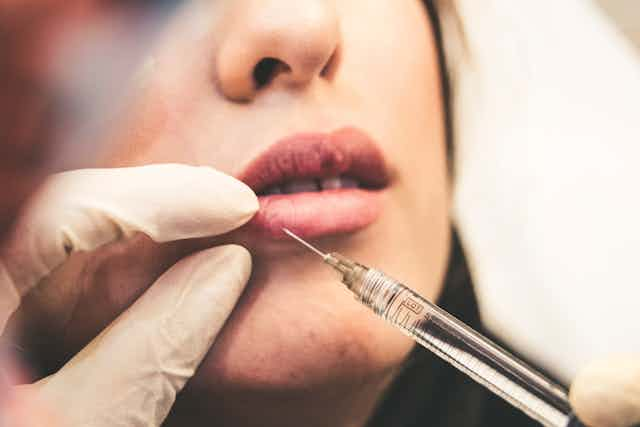The Significance of Mental Sign In Plastic Surgery Decisions
The combination of emotional check out the decision-making process for cosmetic surgical treatment is significantly recognized as necessary for safeguarding individual well-being. These analyses not just aid in identifying underlying mental health and wellness problems, such as body dysmorphic problem, yet also help with a much deeper understanding of people' inspirations and assumptions. By promoting open dialogue between individuals and doctors, these evaluations can result in more informed choices and improved surgical outcomes. The effects of overlooking psychological analyses might prolong far past preliminary examinations, increasing vital concerns about the lasting effect on patient satisfaction and psychological health.
Recognizing Cosmetic Surgical Procedure Motivations
Comprehending the inspirations behind individuals looking for cosmetic surgery is critical for both clients and experts. Generally, these motivations are complex, encompassing personal, social, and social factors. Numerous people seek cosmetic enhancements to boost self-confidence or body image, driven by a wish to straighten their physical look with social criteria or personal perfects.
Social affects, such as the representation of appeal criteria in media and peer contrasts, can also substantially influence a person's choice to undertake cosmetic procedures (cosmetic surgery psychological checks). Additionally, life events, such as considerable shifts or trauma, may motivate individuals to look for medical treatments as a method of reclaiming control over their appearance and identification
Social context plays an essential duty also; different societies have unique meanings of charm and acceptability, which can drive individuals toward cosmetic surgery in pursuit of consistency.
Comprehending these motivations is vital for health care providers to ensure that patients are making educated choices and not only reacting to outside stress. It allows specialists to take part in meaningful discussions with individuals and evaluate the appropriateness of medical treatments, ultimately advertising moral methods in the field of plastic surgery.
The Duty of Mental Wellness
Mental health plays a crucial function in the decision-making process for people thinking about cosmetic surgical procedure. An extensive understanding of a person's emotional state is vital, as it can significantly affect their inspirations and expectations concerning the treatment. People having problem with mental wellness problems, such as body dysmorphic condition or clinical depression, may have misshaped understandings of their look and may seek surgical treatments as a way of dealing as opposed to resolving underlying mental concerns.
The interplay in between psychological health and wellness and plastic surgery choices underscores the requirement of thorough psychological evaluations prior to any type of surgical intervention. These evaluations can aid recognize any kind of potential risks related to the individual's frame of mind, allowing health care specialists to guide individuals in the direction of more appropriate treatment options if required. A solid structure of mental health and wellness can promote healthier attitudes in the direction of body photo and self-regard, contributing to more satisfying results post-surgery.
Furthermore, clients with a sound mental wellness history are more probable to have realistic assumptions and a positive post-operative change. Consequently, incorporating mental checks into the plastic surgery procedure not only safeguards the well-being of the person but additionally improves the overall effectiveness of the medical results.
Examining Emotional Preparedness
Reviewing a person's emotional preparedness is an important part in the decision-making process for plastic surgery. Individuals must have a stable psychological structure to guarantee they can navigate the difficulties related to surgical treatments. This includes recognizing their motivations Related Site for surgical procedure, which ought to preferably come from individual desires rather than social expectations or outside stress.
Evaluating psychological readiness includes a thorough assessment of the individual's mental health and wellness background, existing emotion, and coping systems. Surgeons and psychological health and wellness professionals should participate in open dialogues with individuals to discover any type of underlying emotional issues that might affect their choice. As an example, individuals with a history of body, anxiousness, or depression dysmorphic condition may need extra support and examination prior to waging surgical procedure.
Furthermore, emotional readiness incorporates the patient's capacity to take care of the stress and anxiety of pre-operative prep work, the surgical experience itself, and the post-operative recovery duration. A complete evaluation can assist identify people that might gain from counseling or healing treatments prior to undertaking aesthetic treatments. Ultimately, ensuring psychological preparedness is important to fostering a favorable surgical experience and boosting general patient satisfaction with the end results.
Realistic Expectations and End Results
Individuals' expectations play a crucial duty in the plastic surgery journey, as having sensible expectations significantly influences general complete satisfaction with the medical end results. When individuals approach aesthetic procedures with clear and possible objectives, they are much better geared up to recognize the limitations of surgery and the potential for difference in results.
Unrealistic assumptions can lead to frustration, frustration, and even mental distress post-surgery. It is essential for clients to take part in detailed conversations with their doctors regarding the expected outcomes, recuperation process, and any visit type of prospective threats involved. This dialogue enables a much more enlightened decision-making procedure and fosters a mutual understanding of what can be reasonably attained.
Surgeons have a duty to assess and align their individuals' assumptions with the facts of the treatments. By offering detailed information and visual aids, professionals can aid people visualize the likely outcomes, thus alleviating the danger of frustration. Ultimately, setting sensible assumptions not only improves client fulfillment yet likewise adds to an extra favorable general experience, reinforcing the significance of psychological checks in the decision-making procedure for cosmetic surgery.
Lasting Advantages of Mental Checks

One considerable long-term advantage is the enhancement of individual complete satisfaction. People who undertake psychological examinations are more probable to have practical expectations and a more clear understanding of their inspirations, resulting in enhanced complete satisfaction with medical end results. Additionally, mental checks aid in identifying individuals in jeopardy for postoperative problems, such as body dysmorphic condition, therefore helping with early treatment and assistance.

Conclusion
Incorporating emotional checks right into cosmetic surgical treatment decisions is crucial for advertising client health and satisfaction. These analyses assist in the identification of underlying psychological health and wellness concerns, ensuring that prospects possess emotional preparedness and keep reasonable assumptions. By cultivating efficient interaction in between people and professionals, mental analyses add to enhanced medical outcomes and lowered postoperative difficulties. Eventually, the integration of mental wellness considerations right into the cosmetic surgical procedure process sustains much healthier self-confidence and boosts overall individual coping strategies.
The integration of psychological checks into the decision-making process for cosmetic surgical treatment is significantly recognized as vital for securing person well-being. Inevitably, establishing realistic expectations not only boosts patient complete satisfaction however likewise adds to a much more positive general experience, strengthening the significance of mental checks in the decision-making process for cosmetic surgical treatment.
Eventually, the combination of mental checks into the cosmetic surgery process grows an extra all natural technique to individual care, making sure that emotional health is prioritized alongside physical makeovers.
Including this article emotional checks right into cosmetic surgical procedure decisions is essential for promoting individual wellness and complete satisfaction. non-invasive surgery psychological assessment. Ultimately, the integration of psychological wellness considerations into the cosmetic surgical treatment process sustains much healthier self-esteem and boosts general patient coping methods